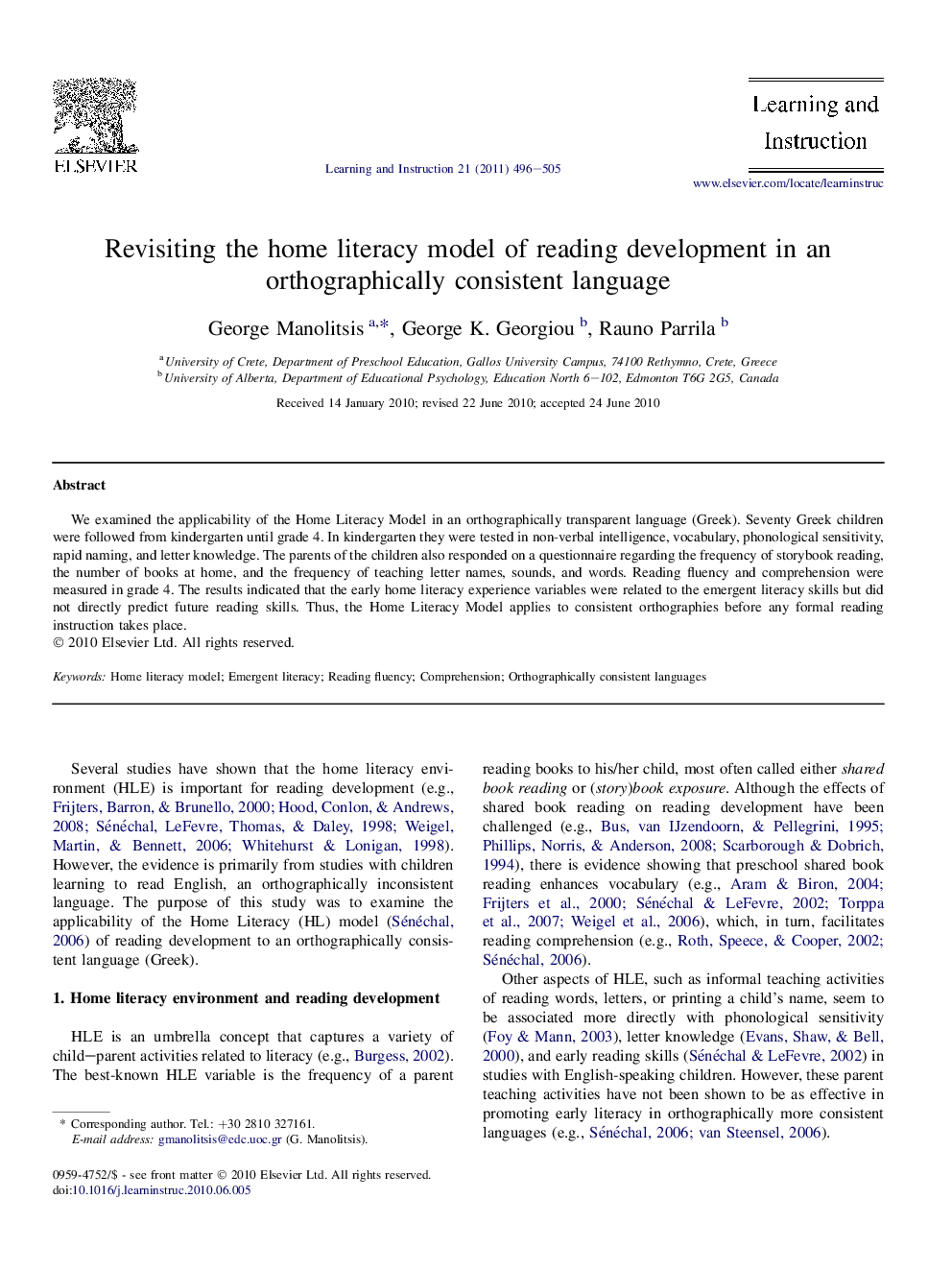| کد مقاله | کد نشریه | سال انتشار | مقاله انگلیسی | نسخه تمام متن |
|---|---|---|---|---|
| 365681 | 621217 | 2011 | 10 صفحه PDF | دانلود رایگان |

We examined the applicability of the Home Literacy Model in an orthographically transparent language (Greek). Seventy Greek children were followed from kindergarten until grade 4. In kindergarten they were tested in non-verbal intelligence, vocabulary, phonological sensitivity, rapid naming, and letter knowledge. The parents of the children also responded on a questionnaire regarding the frequency of storybook reading, the number of books at home, and the frequency of teaching letter names, sounds, and words. Reading fluency and comprehension were measured in grade 4. The results indicated that the early home literacy experience variables were related to the emergent literacy skills but did not directly predict future reading skills. Thus, the Home Literacy Model applies to consistent orthographies before any formal reading instruction takes place.
► Formal literacy experiences predicted letter knowledge and phonological awareness.
► Informal literacy experiences predicted vocabulary.
► None of the home literacy activities predicted future reading.
► The HL model applies to consistent orthographies before formal reading begins.
Journal: Learning and Instruction - Volume 21, Issue 4, August 2011, Pages 496–505